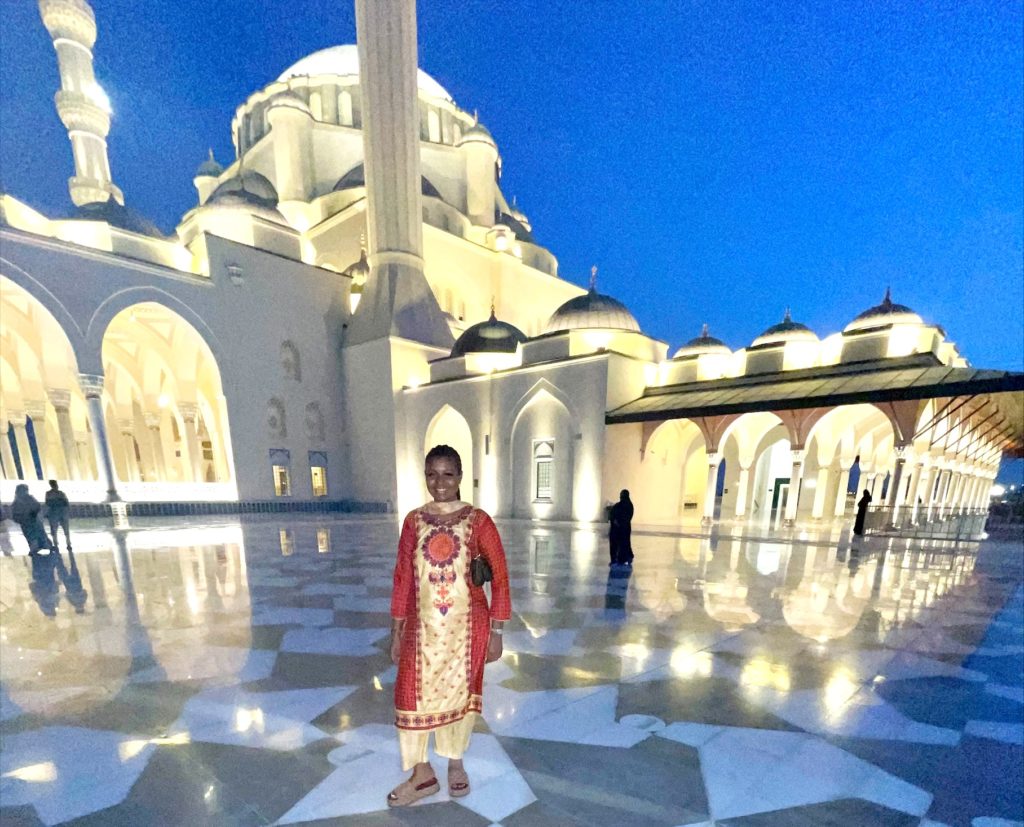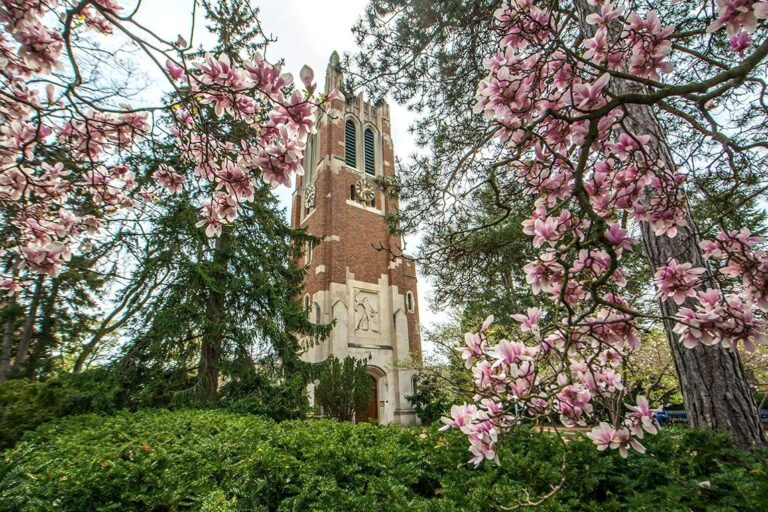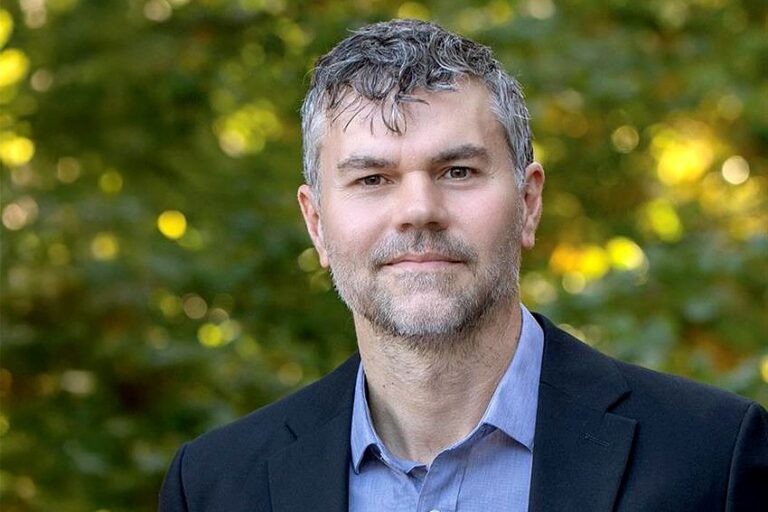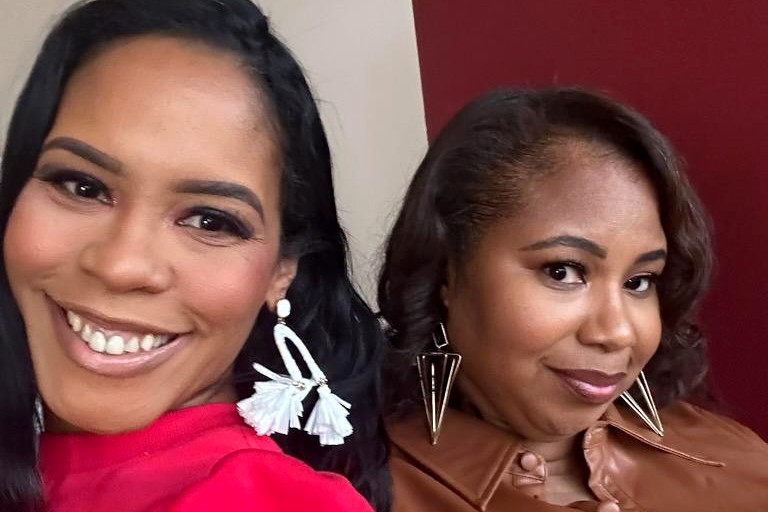College wasn’t always an end goal for Gabby Riley. While her paternal grandmother was a role model as a long-time teacher in Detroit Public Schools and a graduate of Howard University, her parents didn’t follow the same collegiate path.
As a student of Renaissance High School in Detroit, Riley didn’t view herself as college-bound, but quickly changed her mind after receiving a Detroit Promise Scholarship.
“I knew it would be crazy not to seize that opportunity,” she said of the scholarship that offers a tuition-free path to 26 colleges and universities in Michigan.

In 2018, Riley moved 90 miles away from her parents and little brother to attend Michigan State University. She felt torn and uncertain as she forged ahead, but knew she was on the right path. Today, she finds herself approaching the last leg of her journey as she stands poised to graduate this May with a bachelor’s degree in Human Capital and Society and a minor in African American and African Studies.
“Being a first-generation college student is a bigger feat than people think,” Riley said. “For people who haven’t directly seen the benefit of going to college, there can be a disconnect. I wasn’t exactly sure of the value a degree would hold but knew it would be worth the challenge.”
“AAAS taught me so much about Black lives and the rich history that hasn’t been told. The lessons I took away were beyond valuable.”
Gabby Riley
Riley didn’t decide on a field of study until her sophomore year. She knew she wanted to help people and considered herself a problem-solver. Things began to gel after she started working in culinary services at MSU. It was during that time that she fell in love with the discipline of human resources and declared her major.
Shortly after, Riley set out to find a compatible minor that would satisfy her quest to learn more about equity, community, and human interaction. An advisor told her about some new courses being offered by the new Department of African American and African Studies (AAAS). She decided to try the introductory course in African American and African Studies and was hooked.

“AAAS classes helped me find myself,” Riley said. “Even though I was a junior, it was not really setting in what my new life would be like when I graduated. The courses and faculty in AAAS helped me grow up and understand a lot more nuance and real-world things. I also learned a lot about Black Feminisms and now I identify as a Black Feminist myself.”
All throughout her time at MSU, Riley has worked and volunteered. She’s currently an intern in talent attraction at Health Edge and is a member of the diversity, equity, and inclusion committee in the School of Human Resources and Labor Relations. Although she wasn’t able to participate in a study abroad program, she has traveled extensively, including to Dubai, Mexico, Haiti, and Jamaica, fascinated by the nuances of varying cultures.
Armed with a bachelor’s degree in Human Capital and Society and a minor in AAAS, Riley believes she has created a niche for herself within the workforce. She has her sights set on moving to Atlanta to work in recruitment, becoming the direct bridge between African American talent and the careers that were often out-of-reach.
“As a professor, it’s always a joy to engage with students who have a hunger for knowledge like Gabby does. All semester as she’s critically analyzed the systemic oppressions that Black people must contend.”
LeConté Dill, Associate Professor in AAAS
“AAAS taught me so much about Black lives and the rich history that hasn’t been told,” she said. “The lessons I took away were beyond valuable. I didn’t have a lot of highly educated Black women in my life, so coming into the AAAS Department really changed my beliefs in what I can be.”
LeConté Dill, Associate Professor, is among the AAAS faculty members who have mentored and taught Riley during her time at MSU.
“When I first interacted with Gabby, she told me that she wanted to ‘soak up as much as possible’ from AAAS before she graduated,” said Dill, who currently has Riley in her AAAS 403: Institutions and Oppression class. “As a professor, it’s always a joy to engage with students who have a hunger for knowledge like Gabby does. All semester as she’s critically analyzed the systemic oppressions that Black people must contend, she also aids me in co-theorizing Black people’s fierce pursuit of radical joy. This is exactly the kind of praxis we hope to engender in AAAS.”
Written by Ann Kammerer


